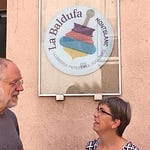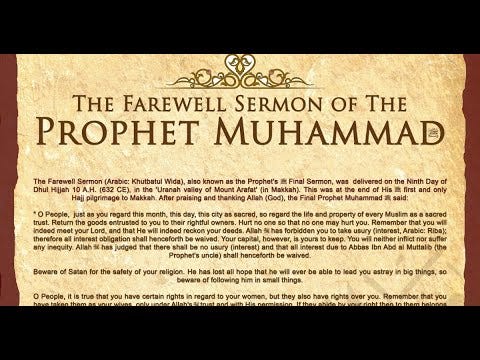We are traveling the length of historic al-Andalus, from Barcelona to Zaragoza to today’s Andalusia (southern Spain) asking ordinary people about convivencia. What is convivencia? It’s a friendlier term for “coexistence” that was originally used to describe the strikingly positive relationship between Muslim, Christian, and Jewish communities in Islamic Spain a.k.a. Al-Andalus.
The notion of convivencia, like so many other ideas, can be understood relativistically by way of its opposite. (Hot means the opposite of cold, big the opposite of small, etc.) When Américo Castro coined the term convivencia to describe the relative tolerance of Ummayid-era Islamic Spain, a.k.a. Al-Andalus, he was contrasting that relative tolerance with the gross intolerance of the Christian regimes that committed genocide against Spanish Muslims and Jews by murdering, force-converting, and/or expelling them. Specifically, Jews were ordered to either convert or leave Spain in 1492, while Muslims, who had initially been allowed to continue practicing Islam in the wake of the 1492 conquest of Granada, were given the “convert, leave, or we’ll kill you” directive beginning shortly after 1500. After a century of extreme persecutions and witch-hunts of suspected crypto-Muslims, hundreds of thousands of people officially considered Christians, but with suspected Muslim ancestry, were expelled in the early 1610s, and many tens of thousands died trying to flee.
Today, genocides and ethnic cleansings are back in the news. Jews are murdering and expelling non-Jews from Palestine, the Holy Land of nearly five billion Christians and Muslims, and the brutal massacre of the people of Gaza is being called “the world’s first live-streamed genocide.” Meanwhile talk of expelling nonwhite people (a category sometimes confused with “Muslims”) from North America, Europe, and Australia is making headway among extremist political groups and movements, who are calling their proposed racist genocide “remigration.”
In the above interview, Denis mentions that Jews have been invited back to Spain and Portugal as post-Christian governments try to atone for the sins of their Christian ancestors. If you can show that any of your ancestors was part of a Sephardic Jewish community, and hence presumably descended from people expelled from Spain in 1492, you can be fast-tracked for Spanish or Portuguese citizenship.
But the vast majority of people descended from victims of the Reconquista Genocide—Muslims—have never been given a similar offer. Why not? As Denis suggests in the interview, the Spanish and Portuguese authorities seem to think that because Muslim armies conquered Spain in the 700s CE (100s H) the so-called reconquista or “reconquest” circa 1100 to 1500 was justified, which then somehow justifies the genocide of Muslims (but not Jews).
But that analysis is wrong. Nobody should blame societies of 500 to 1500 years ago for “conquests.” In that era, all states were essentially permanently at war with their neighbors. It would be absurd to blame Ṭāriq ibn Ziyād for conquering Spain, or Ferdinand and Isabella for conquering Granada. What matters is how they dealt with the “other”—the ordinary citizens of a different ethnicity or religion—in their domains. Throughout almost eight century history of Islamic Spain a.k.a. al-Andalus, Muslim rulers did NOT mass-expel Christians or Jews. While there a few relatively brief periods of persecution during times of war or social unrest, the overall policies of the Muslim rulers were so relatively benevolent that Spanish historians like Américo Castro use the positively-connoted term convivencia to describe them.
White nationalist extremists today, prisoners of their hateful ideology, grossly distort history by cherry-picking rare episodes of persecution under Muslim rule and presenting them as if they were the rule rather than the exception. They anachronistically present the dhimmi status of Christians and Jews under Muslim rule as if it were horrible and humiliating, when in fact (1) the special tax paid by dhimmis was so far from onerous that the Christians and especially Jews were generally, on average, richer than their Muslim neighbors, who had to pay a 2.5% wealth tax known as zakat; (2) the maintenance of a different identity by minority religious groups allowed them to rule their own affairs, make their own laws, and generally live with dignity—for example, alcohol was legal for them but not for Muslims; and (3) the supposedly harsh rules against proselytizing (generally enforced) and building new houses of worship (often not strictly enforced) were only harsh in comparison to today’s anything-goes liberalism, but for their time were wildly ultra-tolerant.
Memo to the Spanish government: Please invite Muslim descendants of the Reconquista Genocide back to al-Andalus!
Transcript of the Interview
We are at the Aljaferia Palace in beautiful Zaragoza, Spain and we're with Denis from Turkey. So Denis, what do you think about convivencia. Is it possible to have convivencia in today's world?
Yeah, I think that it's very possible. At this palace, the Arabic influence in Spain is still very visible, and I think that it's still possible to make a convivencia.
And how about in Palestine? They're not doing so well at this point, are they?
Yeah, exactly. What's going on in Palestine….These are very bad days for the people, because the people are suffering, Israel is not giving permission to humanitarian aid and they are locked down in Palestine. So it's a very sad to see these people in this world like that, suffering. Yeah, it's very, very bad.
So we still have a ways to go with convivencia.
Yeah, sure. There's a ways to go.
Three or four years ago, the Spanish government that made a new law about the Jewish people expelled in the 15th century from Spain. And they said “Please forgive us what we have done to you guys and now we are giving back citizenship for you. You can come back and live in Spain.”
But they didn't give it to Muslims, and they expelled Muslims too! Is that fair?
Yeah, okay. I believe they are thinking in this way. They were thinking the Muslims made an invasion in Spain. They are not thinking as like the Jews were living together as like a co-community. And so that's why they are still thinking (that way) because they're calling it Reconquista. Because they think that they conquered their land and they reconquered them. And they conquered another time. And for Muslims, I think they are not thinking the same.
I think they aren't either. Okay. Well, thank you so much, Denis. I appreciate your taking the time.













Share this post